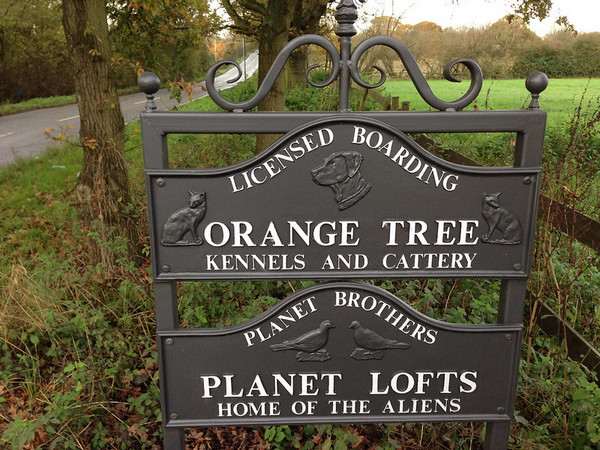Cattery near me: Tips for choosing your cat's boarding place
To find a reputable local cattery you should start by asking for recommendations from cat-owning friends and your local vet. Next, verify these suggestions by reviewing customer feedback on review sites. Finally, ensure the cattery is licensed and visit it to check the facilities personally.
Follow our step-by-step guide below to ensure you choose the best cattery for your pet.
Step-by-step guide to finding a licensed cattery near you
Step 1: Gather recommendations
Start by speaking with trusted cat owners or your vet to get recommendations for reputable local catteries.
Step 2: Use online directories
If personal recommendations are limited, explore online directories dedicated to catteries such as Pedigree Pens or British Catteries. These websites list various catteries and often include certification details.
Step 3: Check online reviews
Narrow down your choices and then consult review platforms like Google, Facebook, Yell, and TrustPilot. Reviews from other cat owners can provide insights into the cattery’s reputation and quality of care.
Step 4: Verify licensing
Identify your local licensing authority by entering your postcode at find your local council. Visit your local council's website and look for a section on animal boarding to check for a public register of licensed catteries. If the register isn't available online, contact the council directly via phone or email to verify the licensing status of your chosen catteries.
It’s really important to check that the cattery you choose is licensed. This ensures they meet stringent standards for hygiene and safety. Since 2018, animal welfare regulations in England require animal boarding licences to include a detailed star rating and the duration for which the licence is valid. Ideally, opt for facilities that boast at least a 3-star rating. You can find the Scottish regulations for animal welfare at this link.
Step 5: Request to see the licence
You should be able to find a copy of a cattery's licence online. If this isn't possible, contact the cattery and ask to see it (it should be available online and on-site). Reputable establishments will be transparent about their licensing status and should provide this information.
When viewing the licence, check the issue and expiry dates to ensure it's valid. Verify that the name and address match the establishment in question.
Step 6: Visit potential catteries
Once you’ve narrowed your choice down to two or three local catteries, book a visit to each one to check out the facilities for yourself before making your final decision. It’s worth spending the time doing this right, so you can be reassured that your cat’s stay away from home will be as pleasant as possible.
Check facilities and hygiene
When taking a tour, check that the boarding facility is clean, well maintained, and well ventilated. Disease can spread fast when animals are housed together, so staff hygiene and cleanliness are vital – all reputable catteries will want up-to-date vaccination certificates to prove that your cat is protected. Ask about disease-prevention measures, what they do to ensure cats from different households can't touch each other, and any other hygiene protocols in place.
Security measures
Make sure the cattery is secure and includes individual cat units with no gaps, as well as a 'safety corridor' or double-door system to prevent escapes.
Comfort and stimulation
Check the facility provides mental stimulation and a comfortable environment. Features like high shelves allow cats to climb and observe their surroundings, helping them feel more secure. Confirm whether you can bring familiar items from home, such as toys or bedding, to help your cat settle in more easily.
Step 7: Book your spot
Once you’re satisfied with the cattery’s reputation, facilities, and licence status, you're ready to book a spot for your cat.

A licensed cat boarding facility — License CC BY-NC-ND 2.0
Read more: Tips for choosing your dog's boarding kennels
What catteries must do to get a cat boarding licence
| Section | Description |
|---|---|
| Licensing requirements | All commercial cat boarding activities need a licence. Criteria include adhering to HMRC’s trading guidelines. |
| Minimum standards | Businesses must maintain basic welfare standards. If minor issues not affecting animal welfare are found, the licence can still be renewed based on a risk assessment. |
| Higher standards | Earning a 4 or 5-star rating and a longer licence of two or three years requires meeting all essential higher standards and at least half of the optional ones. |
| General conditions | The licence must be clearly displayed at the premises and online. Conditions specify limits on the types and numbers of cats to prevent overcrowding and ensure staff can meet all welfare needs. |
| Staff competence | Staff should be trained to identify normal and abnormal behaviours, signs of distress, and know how to alleviate suffering. They must have relevant qualifications or experience. |
| Environment and housing | Facilities must be secure, hygienic, and safe, with enough space, light, and ventilation. They must prevent escapes and injuries, and provide comfort for the cats. |
| Diet and health | Cats should be fed at least twice daily and always have access to fresh water. Health monitoring and preventative care must be consistent and well-documented. |
| Emergency procedures | There must be a detailed emergency plan for events like fires or system failures. This should include evacuation procedures and emergency contact details. |
Questions to ask before choosing a cattery
Once you’ve got together a few recommendations for local catteries, start by calling round and asking a few important questions:
- What will my cat’s living space be like?
- What will my cat eat?
- Can I provide my cat’s favourite food?
- If my cat is on regular medication, will they be able to administer it (successfully!)?
- How many staff will my cat interact with?
- What happens if my cat becomes ill and how will the treatment be paid for?
- What vaccinations do you require?
- Will my cat interact with other cats?
What's the cost of cat boarding?
Another important consideration is the cost of the stay. Cattery rates vary, so always ask for rates before making your decision. Remember to factor in any hidden charges – your chosen cattery may charge for providing a special diet, for example. It’s a good idea to get an estimate in writing before booking your cat’s stay.
Remember, just like a good hotel, popular catteries can get booked up — particularly during peak holiday season — so always book in advance.
Before going on holiday
- Make sure the boarding cattery has your up-to-date mobile number, your vet’s details and other emergency contact information in case of a problem.
- Provide any special food if necessary.
- Consider providing a favourite comforter from home, so your cat has a reminder of you while you’re away.
Read more: Cat vaccinations: keeping your kitten healthy and happy
Alternatives to using a cattery
There are several alternatives you might consider to a cattery. These include:
-
Pet sitting: Having a pet sitter come to your home can keep your cat in familiar surroundings, which helps reduce stress and maintain routine.
-
Home boarding: Some services offer home boarding for cats, where your pet stays in the home of a trusted caregiver.
-
Family or friends: Often overlooked, family or friends can provide a great option, especially if they already know your cat and can offer a stable and loving environment.
-
Tech-based solutions: For very short breaks, consider using technology to monitor your cat while you're away, such as installing cameras for remote monitoring or using automated feeders.
-
Professional cat sitters: They can either stay at your house or make one or more daily visits to feed, play with, and check on your cat.
You can now use apps and websites to connect with pet sitters in your area. Examples include Cat in a Flat, Trusted Housesitters, and Pawshake. These platforms allow you to find sitters with verified reviews, specific services like daily visits or overnight stays, and often include additional perks like insurance and emergency support.

Needing advice on a local cattery?
For expert advice on choosing the right boarding cattery, just contact your local vet.
Find your nearest vet using our find a vet page, or speak to a vet online using online vets.


